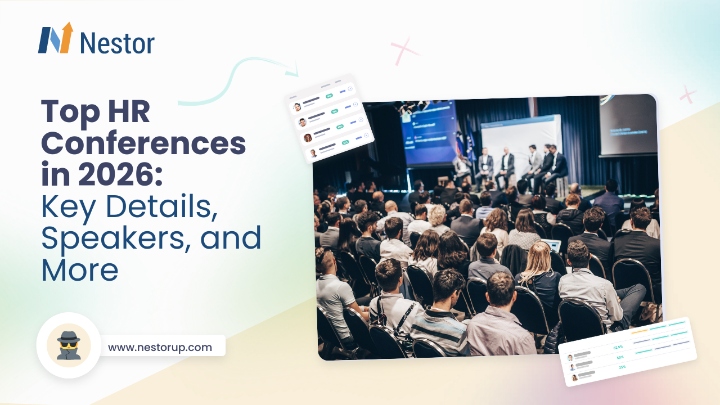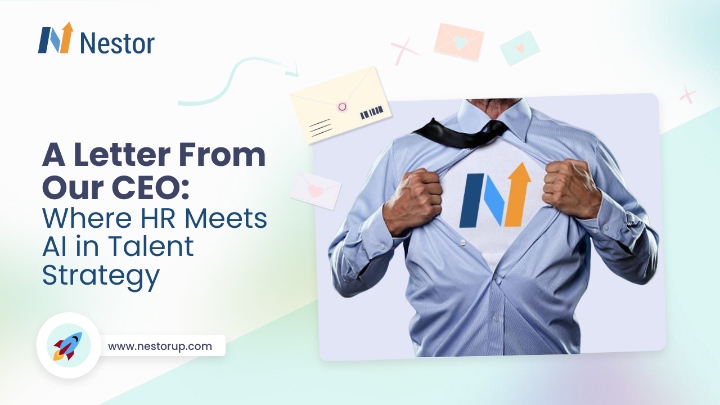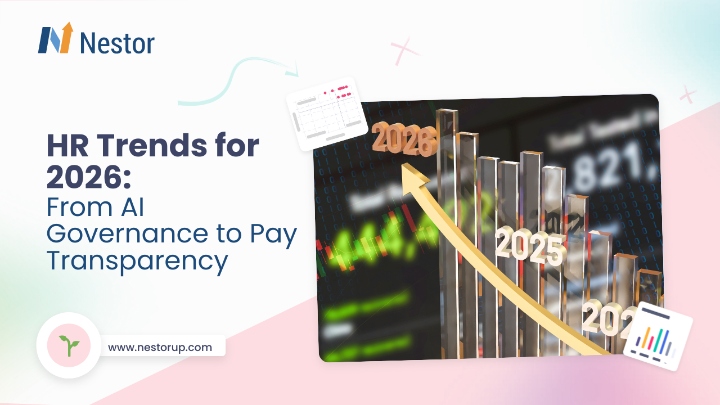Skills Will Be at the Heart of Effective Talent Strategies in 2023
7 min read

As economic headwinds are blowing, companies worldwide are looking for ways to optimize costs, address more in-depth productivity issues, and develop effective talent strategies to support the first objectives.
Regarding talent planning, the last three years have been defined by ups and downs. The starting point of the pandemic meant a hiring freeze for most sectors, then a boom lifts in hiring, especially for digital solutions and e-commerce. The Great Resignation wave closely followed, with a record of employees quitting their jobs in search of better work-life balance, purpose, and meaningful development opportunities inside their workplace.
Now, almost one year later, the massive layoffs are mounting each day. Moreover, to add additional worries to the current context, a recent Mercer survey reveals that more than half of the companies interviewed (57%) plan for workforce reductions this year. Meanwhile, half say they have increased hiring budgets, but taking a more targeted approach.
This situation is highly challenging for HR and people leaders who have to ensure their talent strategies adapt very quickly to the changing business needs.
In 2023, skills will be at the heart of talent planning, as the most effective way to align the pivoting business priorities with the necessary talent.
How can skills visibility lead to more effective talent strategies?
As we’ve seen lately, growing concerns amid economic uncertainty require that HR leaders be ready to pivot again.
Skills give HR leaders the visibility they need to ensure that the people in the organization are in the right place, at the right time, and have the right skills to perform their jobs.
This planning is critical at a time when organizations look to secure their profit margins and focus on the business units that can generate growth in the long run. Although executives are still optimistic about increased customer demand in this period, their trust falls shortly behind regarding the capacity to meet demand with their current talent model.
Essentially, leveraging skills-based practices across the whole talent journey can contribute to more effective talent strategies in 4 ways:
1. Better talent planning starts with a fluid workforce
As we’ve seen happen lately, the disruptions caused by the pandemic and the prospect of a global recession translate into variable customer demand and shifting market trends. With multiple ongoing transformations, companies must be ready to assess the areas with the highest customer demand and pinpoint the market trends that are strategic to future innovation and growth.
This sometimes means that organizations are forced to close down some business units that don’t make sense anymore and instead maximize the number of positions directly correlated with higher customers’ demands. If companies are prepared to allow talent to migrate fluidly within their organization, this is a chance to reallocate people from one unit to another.
To redeploy talent fast, leaders need to have full visibility over skills at the organizational level and identify candidates from other departments or roles that might be a close match. Evaluating people based on their skills rather than their job description and roles is critical in these situations. The skills-based approach can surface candidates with a high percentage compatibility between their acquired skills and desired skills for the new role but with no past relevant experience. These candidates might have been overlooked solely based on their previous experience and job roles.
2. Skills-based development to close the skills gaps becomes central in a period of slower hiring
Talent and skills shortages remain high despite an economic slowdown. For some managers, skills shortages pose a similar threat to their organization as a potential recession. Especially in these situations when skills gaps can inhibit the ability of the organization to meet its business goals.
If a recession is not a barrier to growth, a talent shortage is.
— Mercer
Even during an economic downturn, most organizations recognize the need to prioritize targeted skill-building initiatives to ensure their workforce is prepared to deal with any emerging challenges. In their attempt to close the skills gaps and identify areas of growth, organizations have reconsidered their work practices around skills to the detriment of jobs.
Skills visibility inside the organization coupled with a clear direction for the future, including the critical roles and skills to achieve it are the first steps in developing customized plans for each employee. And as organizations prepare for o slower pace of hiring, they become more dependent on developing their own workforce.
Therefore, picking up the most suitable upskilling or reskilling development programs start with assessments of the skills and competencies in the organization, actual and desired skills level, and skills that should be prioritized next.
Upskilling and reskilling programs inside the organization have also become imperative to develop knowledge around digital capabilities or soft skills that some traditional academic courses fail to offer at the moment.
3. Skills-based performance management can reveal clear paths forwards
Skills-building initiatives and new models of talent planning that allow people to move fluidly and fast inside an organization are increasingly important to support pivoting business needs.
However, an effective talent strategy should also support people to perform at their best and set clear development objectives to move forward in their careers.
The concept of skills-based performance management has been tackled as part of a more comprehensive McKinsey article on skills-based organizations, published last year. The authors of this article wonder if skills should be considered during performance management processes since the traditional performance approach evaluates employees against progress toward goals rather than skills themselves. So should skills matter in this equation?
Companies like Google rely on their performance management process and skills at the same time to help people stay focused on their objectives and also to set learning and career development goals so they can advance in their careers.
Starting this point, organizations can further encourage skill development and identify clear career paths so that employees are ready for their “next-level” roles. This is why performance review sessions should focus both on employees’ performance but also on their growth. Employees together with their managers and HR should share a common understanding and discuss the type of skills they need to acquire or maybe refine, what learning objectives they need to accomplish, and what should career paths look like in their case.
4. A targeted and skills-based hiring approach might be the solution for the next period
Due to pressure to lower overhead costs overall, PwC’s Kathryn Kaminsky believes that organizations will become more “selective” in their talent search, focusing on unique skill sets, rather than hiring for particular roles.
To leverage and benefit from this approach, organizations must understand first what skills pools they already have, the skills in high demand or short supply, and pinpoint essential skills and capabilities that can drive innovation and competitive advantage on the market. In this new context of an economic downturn, they will heavily weigh in internal development options versus external hiring.
Final thoughts
Skills play an essential role in developing effective talent strategies embedded in every HR practice, from hiring and talent planning to career development and performance management. Reach out to us and see how our People Intelligence Platform can leverage skills to sustain an effective people strategy during an economic downturn.










